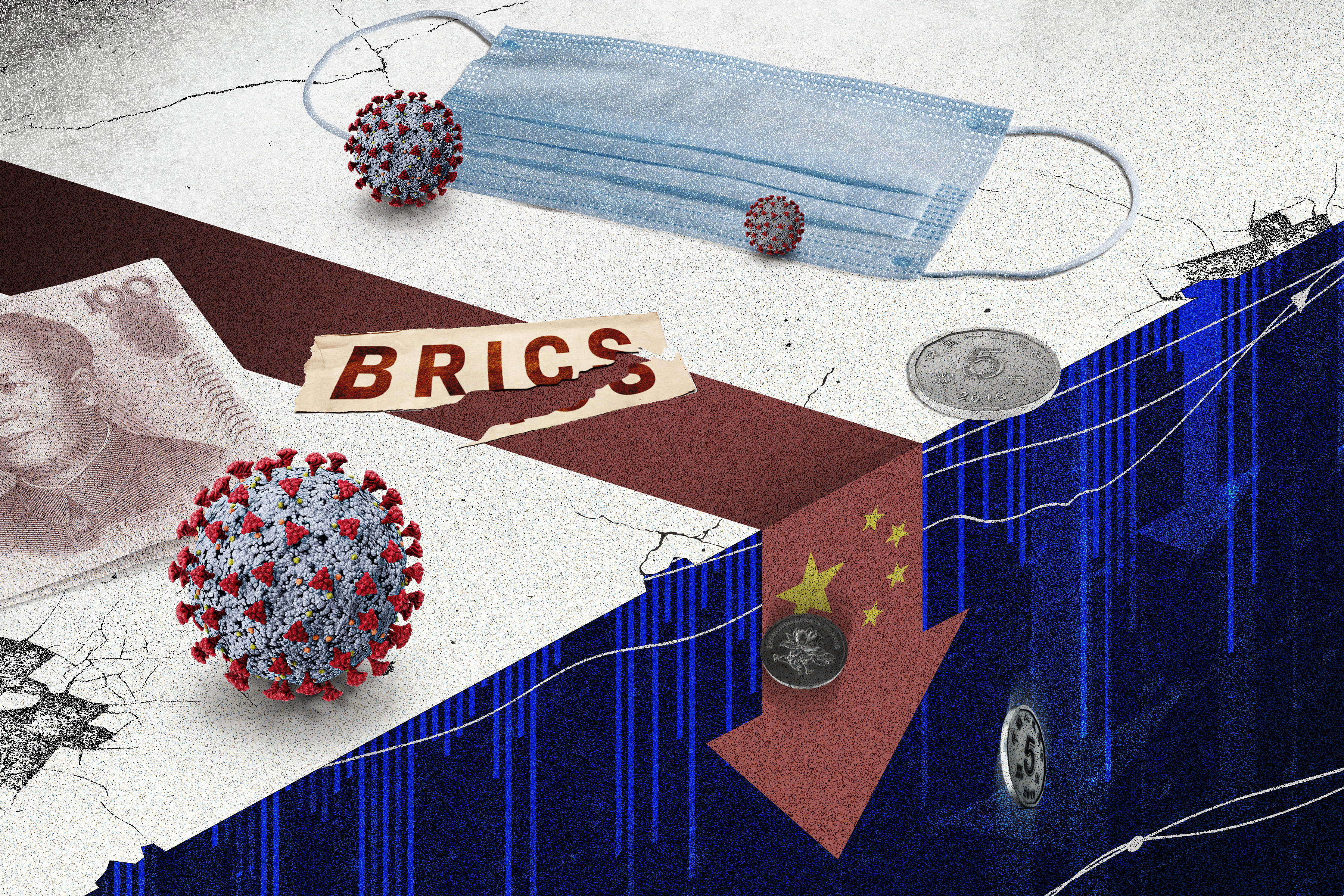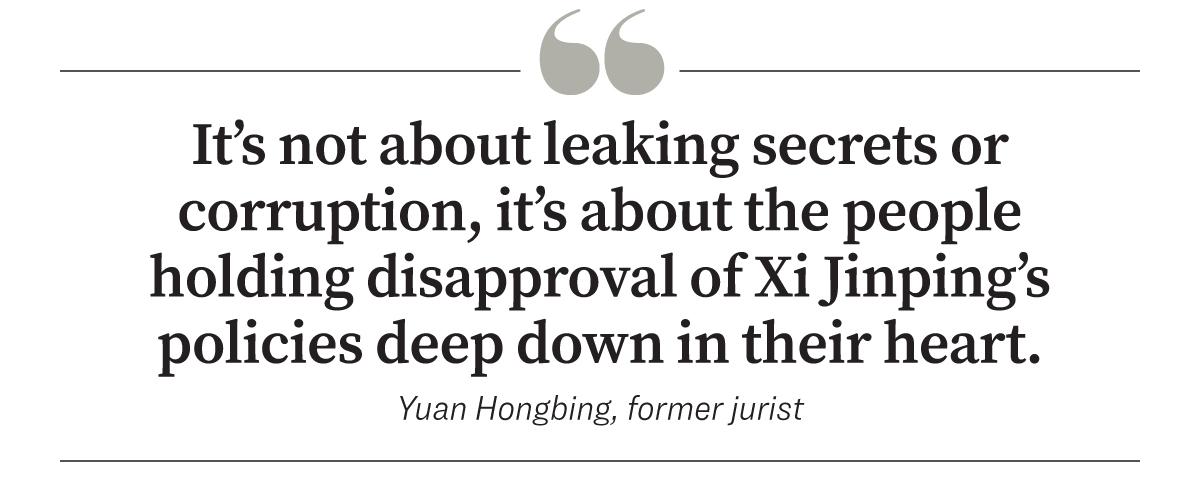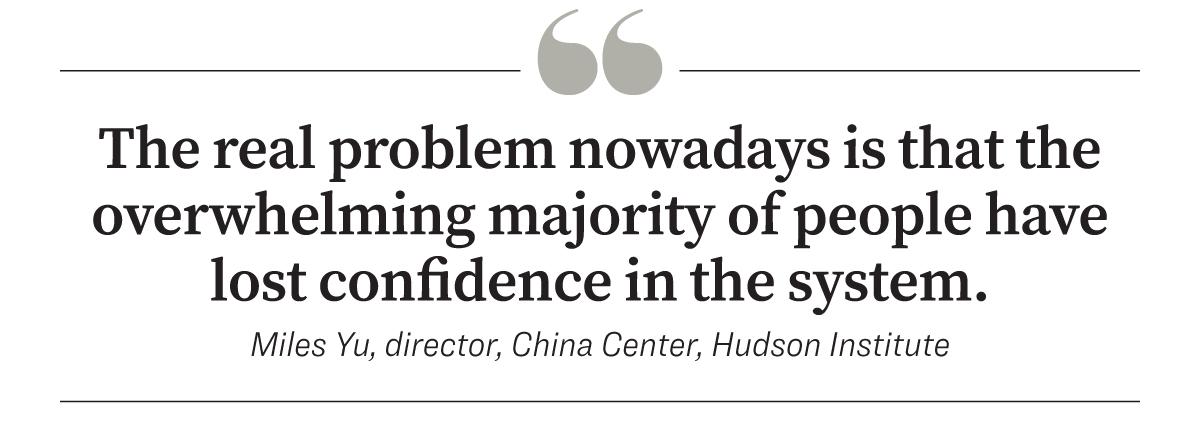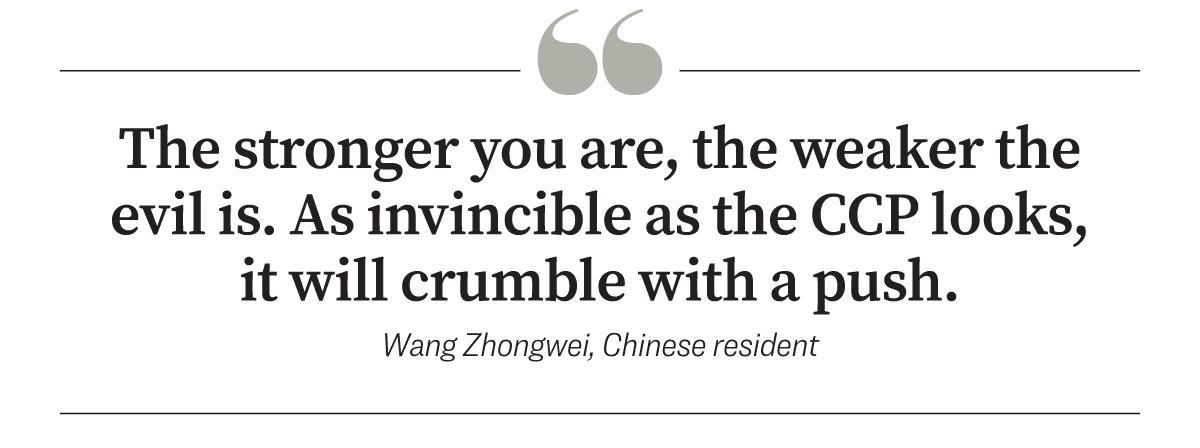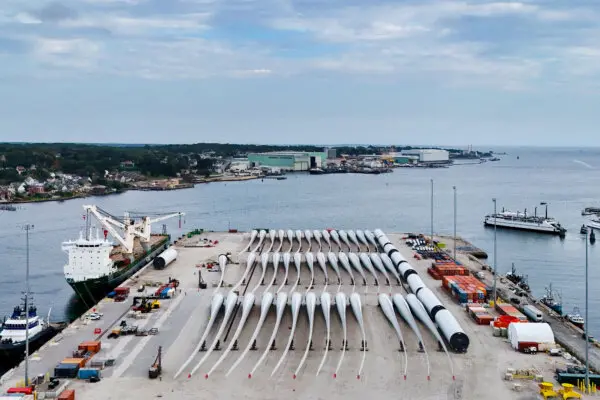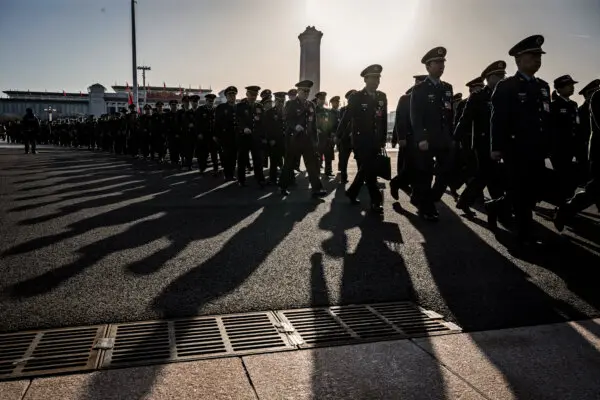Three years ago, Wang Zhongwei had never dreamed of defying the Chinese regime. At just shy of 30 years old, he had his hands full running an apparel export business in Wenzhou, China, with dozens of employees under him.
Mr. Wang’s eyes were opened soon enough. Lockdowns turned his city into a “prison,” and he began to understand what the Party was willing to do for the sake of power.
If the regime could lie about matters of life and death, he wondered, what would become of him if he died of COVID-19?
“You are so insignificant that even if you die, nobody would know,” Mr. Wang told The Epoch Times.
If COVID-19 marked an inflection point for people such as Mr. Wang, the past year has just added to the regime’s disfavor.
Three years of unceasing lockdowns shuttered hundreds of thousands of private enterprises, including Mr. Wang’s, and decimated a sector that employs about 80 percent of the Chinese workforce at a time when the young and educated have been struggling to find jobs.
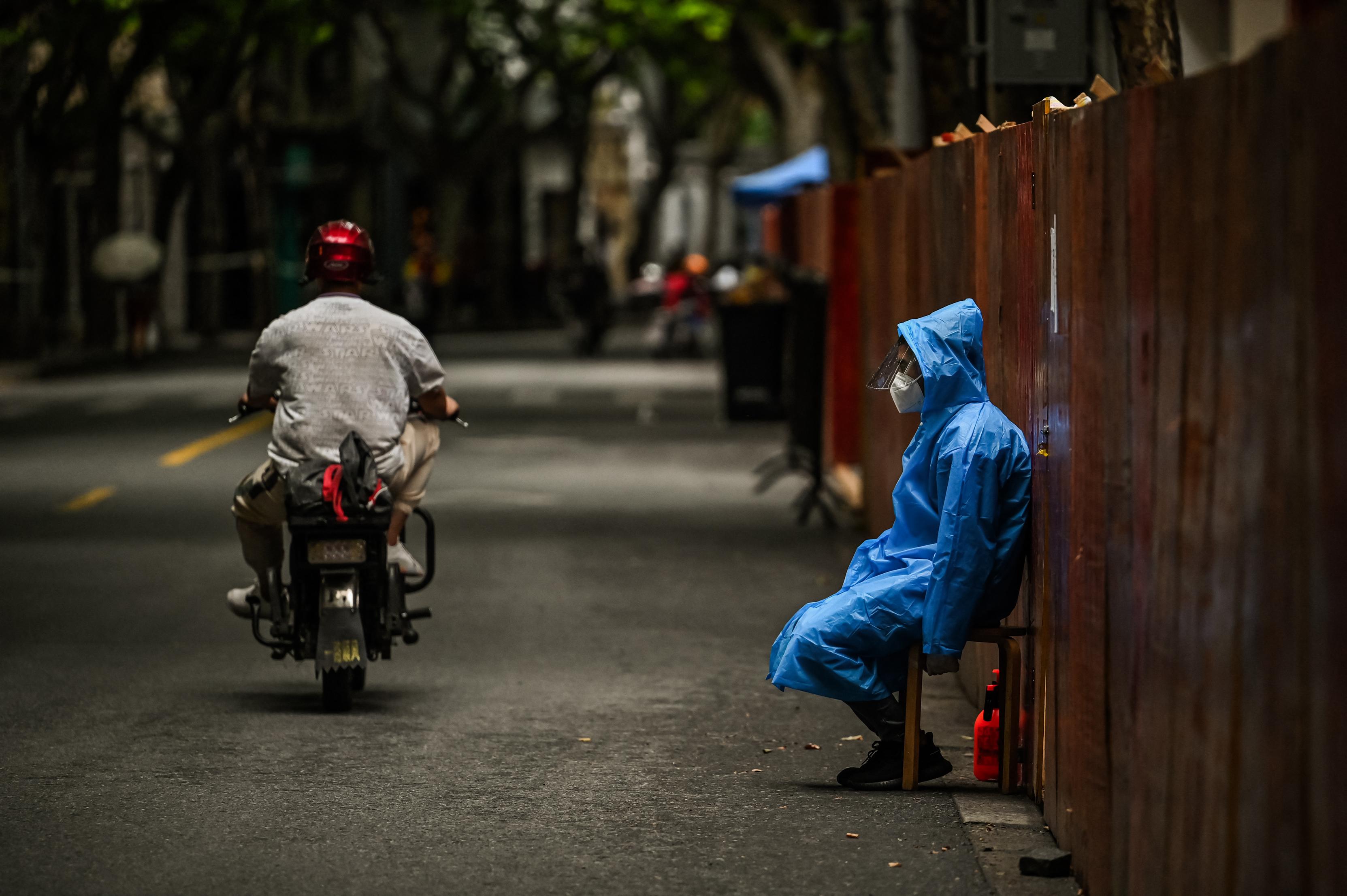
Any dreams of the pain easing in 2023 all but vaporized. Despite Chinese policymakers’ repeated push to extend financing support to small businesses, revitalize tourism, and bolster domestic spending, a desperately hoped-for economic rebound is nowhere in sight.
Cash-strapped governments have cut workers’ salaries and delayed their bonuses. A public hospital in the Gansu Province is 15 months behind on wages.
Plummeting demand has forced a medical equipment supplier in Chinese industrial hub Shenzhen to put employees on as much as 10 months of unpaid leave. Several other manufacturers, in industries from glass to aluminum, have resorted to the same measures in nearby Guangdong Province.
Bestore, a popular Chinese snack brand, slashed prices on about 300 products by as much as 45 percent amid its first year of slumping sales in 17 years. Given how consumers have tightened their purse strings, any other option would be a “dead end,” company founder Yang Yinfen wrote in an internal memo.
The pessimism is seeping into all corners of Chinese society. The heavily indebted real estate market is filled with frustrated owners of unfinished properties that bankrupt developers have left behind. In some cities, housing prices have nosedived so steeply that property holders are offering their newly furnished houses for free just to get rid of the monthly mortgage payments.
Debt has become a glaring issue. Missed loan or mortgage payments have put about 8.6 million Chinese on a court blacklist, a figure that has surged by 50 percent since the beginning of 2020.
Determined to eliminate discordant voices, at least in the domestic sphere, China’s top intelligence unit in mid-December elevated narratives concerning the economy to a matter of national security. Leaders hinted that anyone who badmouths the economy—on social media and elsewhere—could be held criminally liable.
“It just shows you how bad the Chinese economy is,” former Beijing lawyer Lai Jianping told The Epoch Times. “The authorities are so out of options about reviving the economy that they are using this most nonsensical tack.”
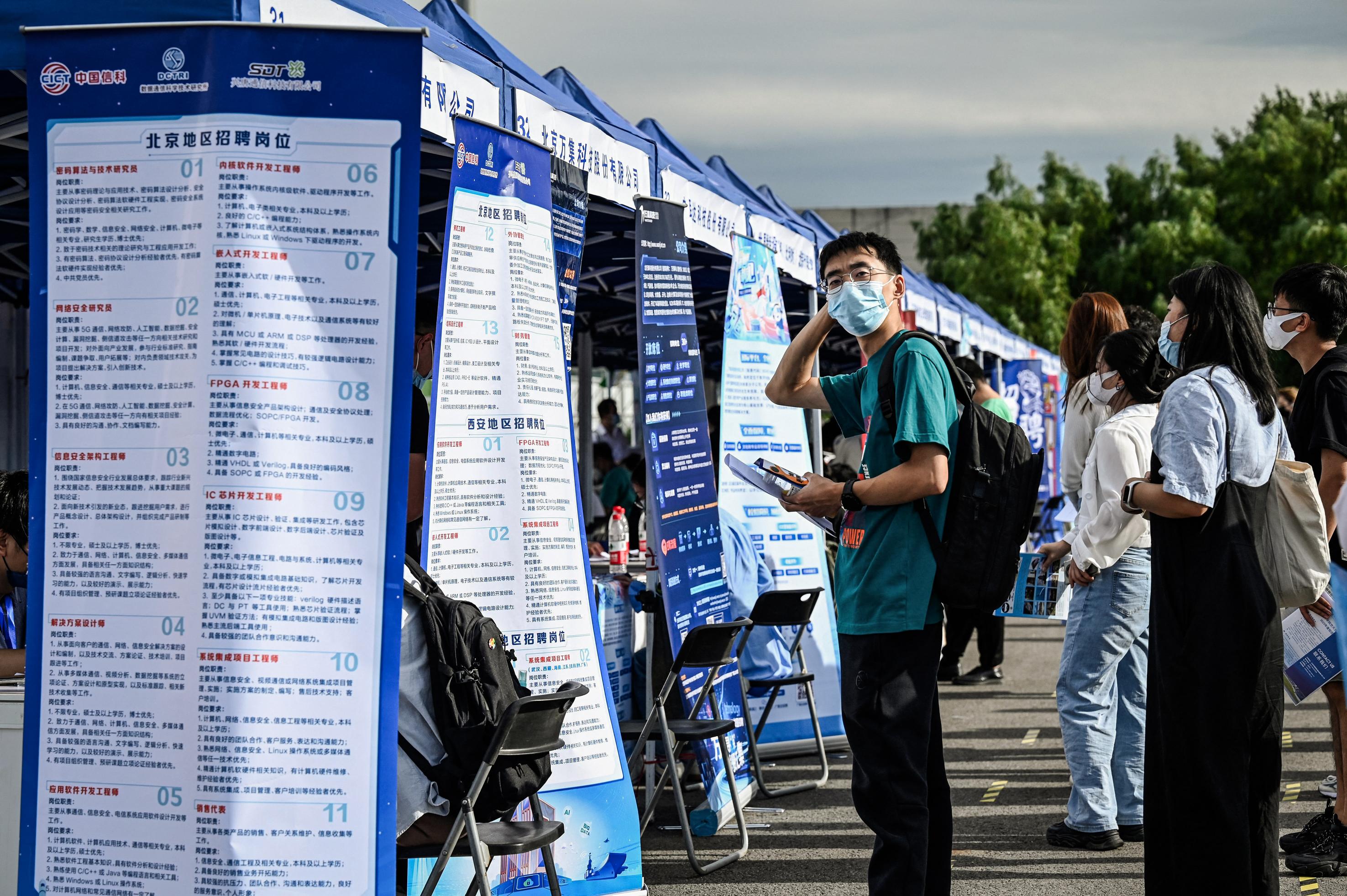
A Nation on the Edge
Hiding vulnerabilities is routine for the regime, but more than spending power is at stake. While the Chinese populace had been willing to put up with abuses so long as their living standards were improving, that’s no longer happening, according to Piero Tozzi, staff director of the bipartisan Congressional-Executive Commission on China.“People are not robots. And what they’re saying is that we don’t have hope and confidence in the future anymore under the Chinese Communist Party,” he told The Epoch Times. “This, I think, creates an opportunity for change.”
While Beijing continues its campaign to control the narrative, faith in the Party leader Xi Jinping and the communist system is waning.
“I don’t think people are going to want to follow him into an abyss,” Mr. Tozzi said.
A senior Chinese media executive, whose name has been withheld for his safety, told The Epoch Times that he’s spoken to many high-ranking officials who have serious misgivings about China’s current state of affairs.
Top officials are using their status to move their children and assets abroad, while those in the lower ranks are passively “muddling along,” he said.
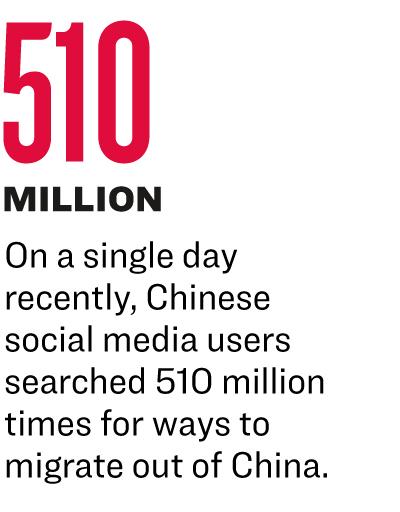
By the numbers, China ranks highest in the world for departures of millionaires: 13,500 ultra-rich individuals were estimated to have left in 2023.
Tens of thousands of other Chinese people are also fleeing the country; with a tenfold rise in those turning up at the U.S.–Mexico border. On a single day recently, Chinese social media users searched 510 million times for ways to migrate out of China, a record that apparently so irked authorities that the app WeChat swiftly erased the keyword from its ranking history altogether.
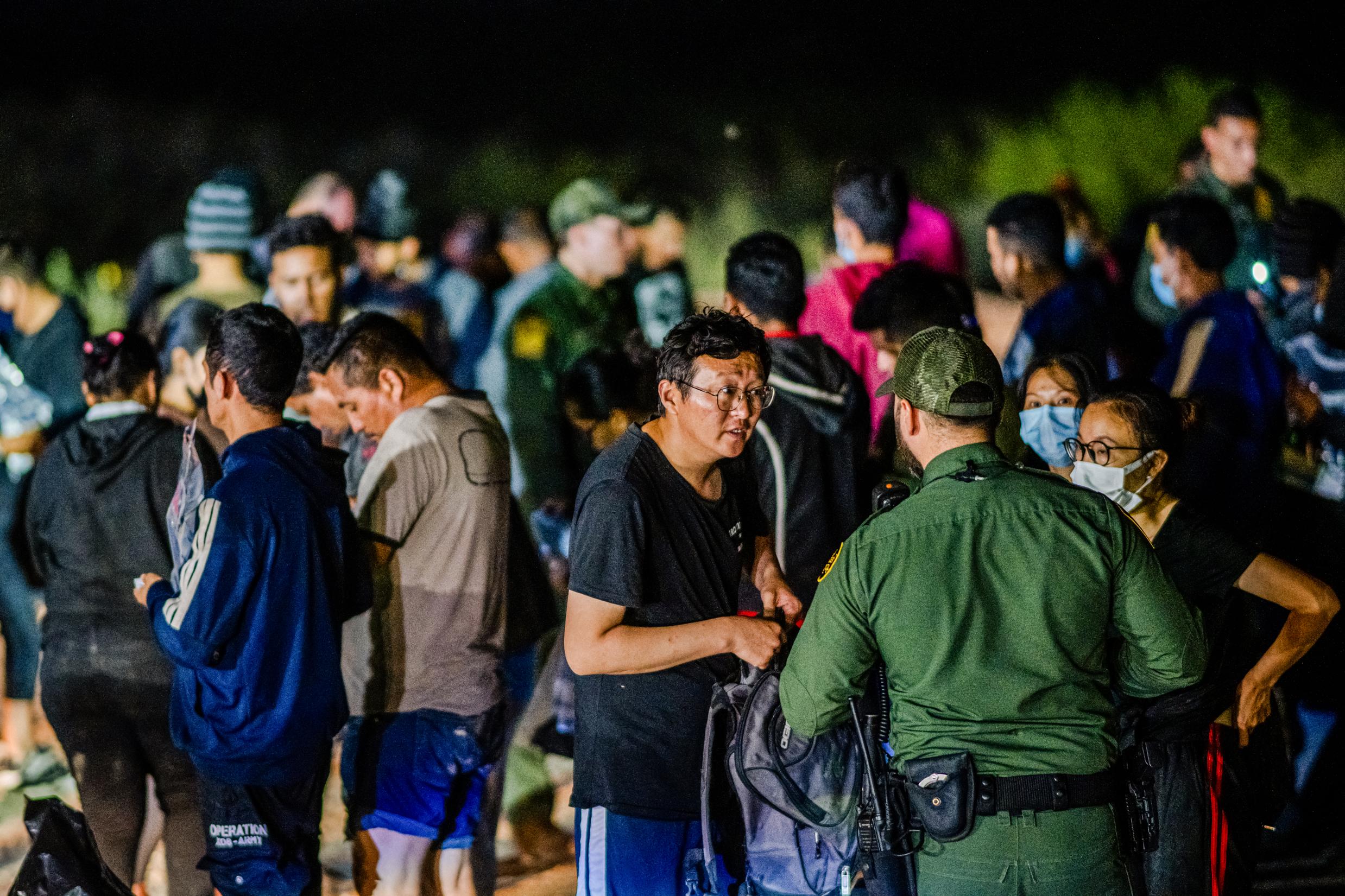
A turn of sentiment among China’s top echelons will be particularly alarming for the regime, as the Party’s mantra has been to co-opt the elites and keep them on its side, even if the rest of the country has to suffer, according to John Lee, a senior fellow at the Hudson Institute who formerly advised the Australian government on Indo-Pacific affairs.
“That’s a lesson learned from the Soviet Union, that if you lose the support of the elites, then that’s the first step towards being overthrown,” he told The Epoch Times.
Chief in their dissatisfaction is the shrinking economic pie. Hinting at the country’s financial strains, Party boss Xi has instructed government organizations twice in the past two months to “get used to practicing a strict economy.”
Whatever crimes the ousted officials are subsequently charged with aren’t the full story, according to Yuan Hongbing, a Chinese dissident and former jurist who has access to the Party’s inner circles.
“It’s not about leaking secrets or corruption, it’s about the people holding disapproval of Xi Jinping’s policies deep down in their heart,” he told The Epoch Times of the expanding purge.
But, he warned, endless political roundups will only make matters worse: The resulting climate of fear, even if ensuring total obedience for the moment, will ultimately serve to demoralize and create more enemies.
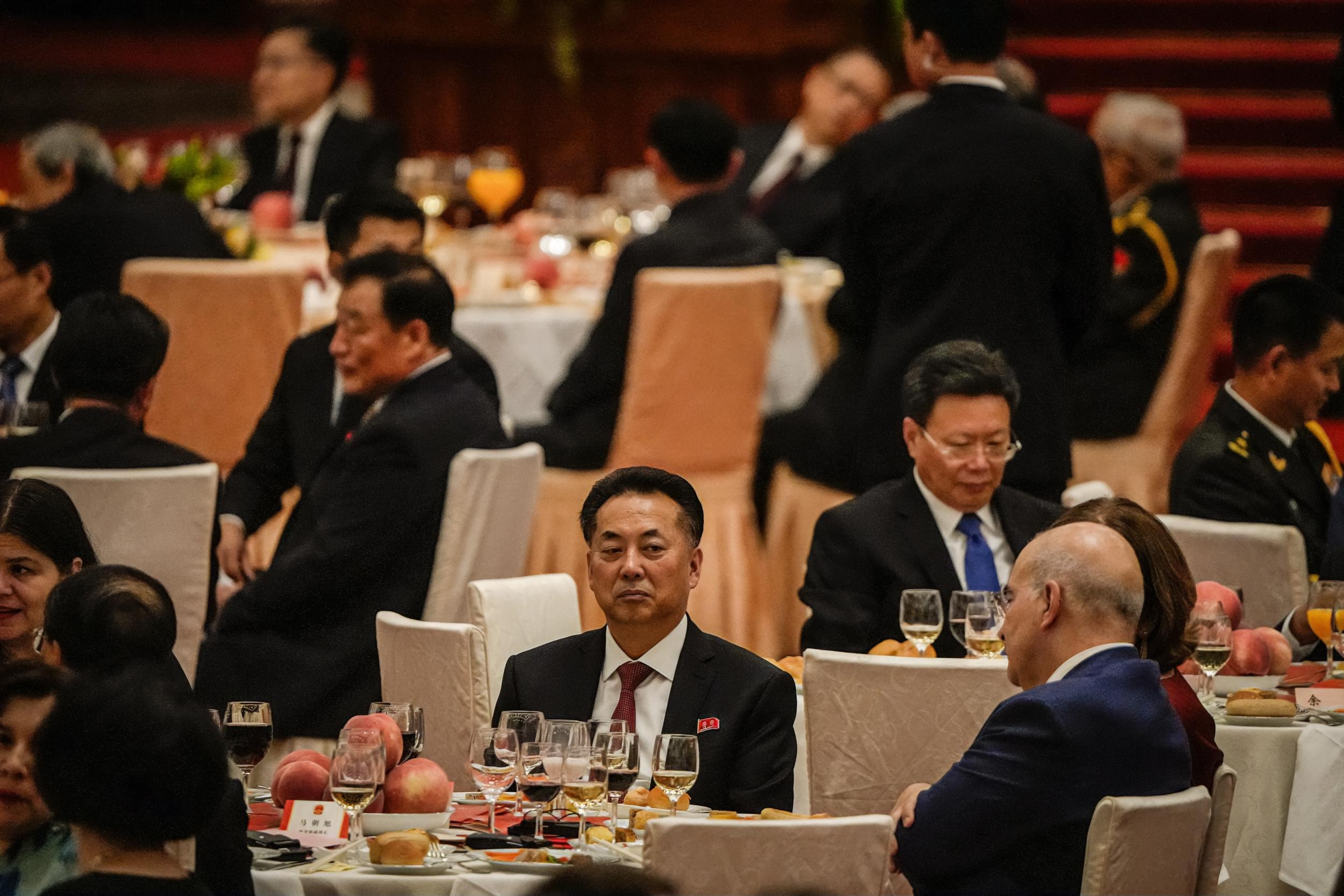
At Home and Abroad
Beyond the economy, China has had its fill of troubles on other fronts over the past year.In a major year-end speech, China’s communist leader boasted that he has charted a course for the world’s future. “Creating a common destiny for mankind,“ he said, is one of his ”historical accomplishments“ of the past decade and reflects the “shared wish of people around the world.”
But his declaration rings hollow when, on the international stage, Beijing’s military aggression, human rights abuses, and economic coercion have increasingly walled off the regime from the West.
Reports of Chinese espionage in Belgium prompted its prime minister, Alexander De Croo, to call China a “sometimes very hostile” country, and U.S. Commerce Secretary Gina Raimondo, in defending new sanctions on Beijing, told a California national defense forum in December 2023 that “China is not our friend” but the “biggest threat we’ve ever had.”
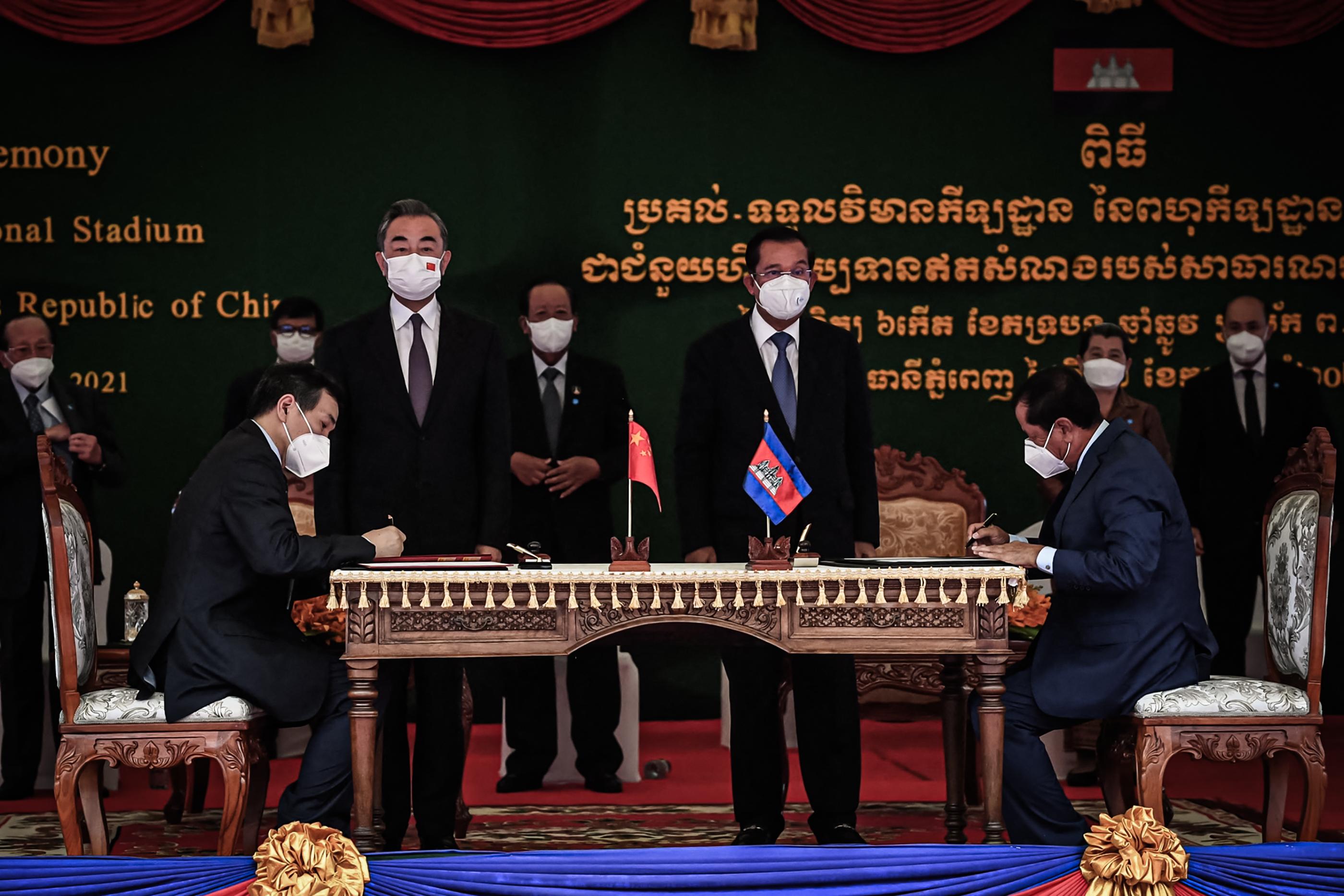
As geopolitical tensions escalate and people both rich and poor pack up and flee, even some of the most ardent China bulls are changing their minds.
Investment firm Vanguard aborted plans to expand its China presence and dismantled its last China-based operating team in November 2023.
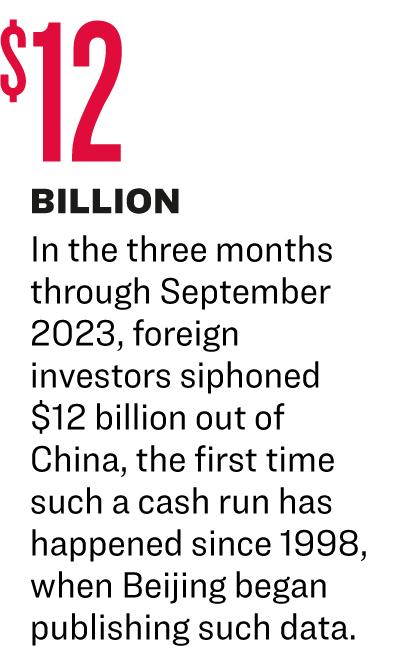
Six months after committing his firm to conducting business in the communist country “through good times and bad times,” JPMorgan Chase CEO Jamie Dimon is signaling a willingness to exit the country if the U.S. government orders it necessary.
In the three months through September 2023, foreign investors siphoned $12 billion out of China, the first time such a cash run has happened since 1998, when Beijing began publishing such data.
From top to bottom, the murmurs of dissent seem to be growing louder all around China.
Hong Kong-based advocacy group China Labour Bulletin recorded more than 1,900 protests and strikes of Chinese workers over unpaid wages in 2023, more than the number of clashes over the previous three years combined.
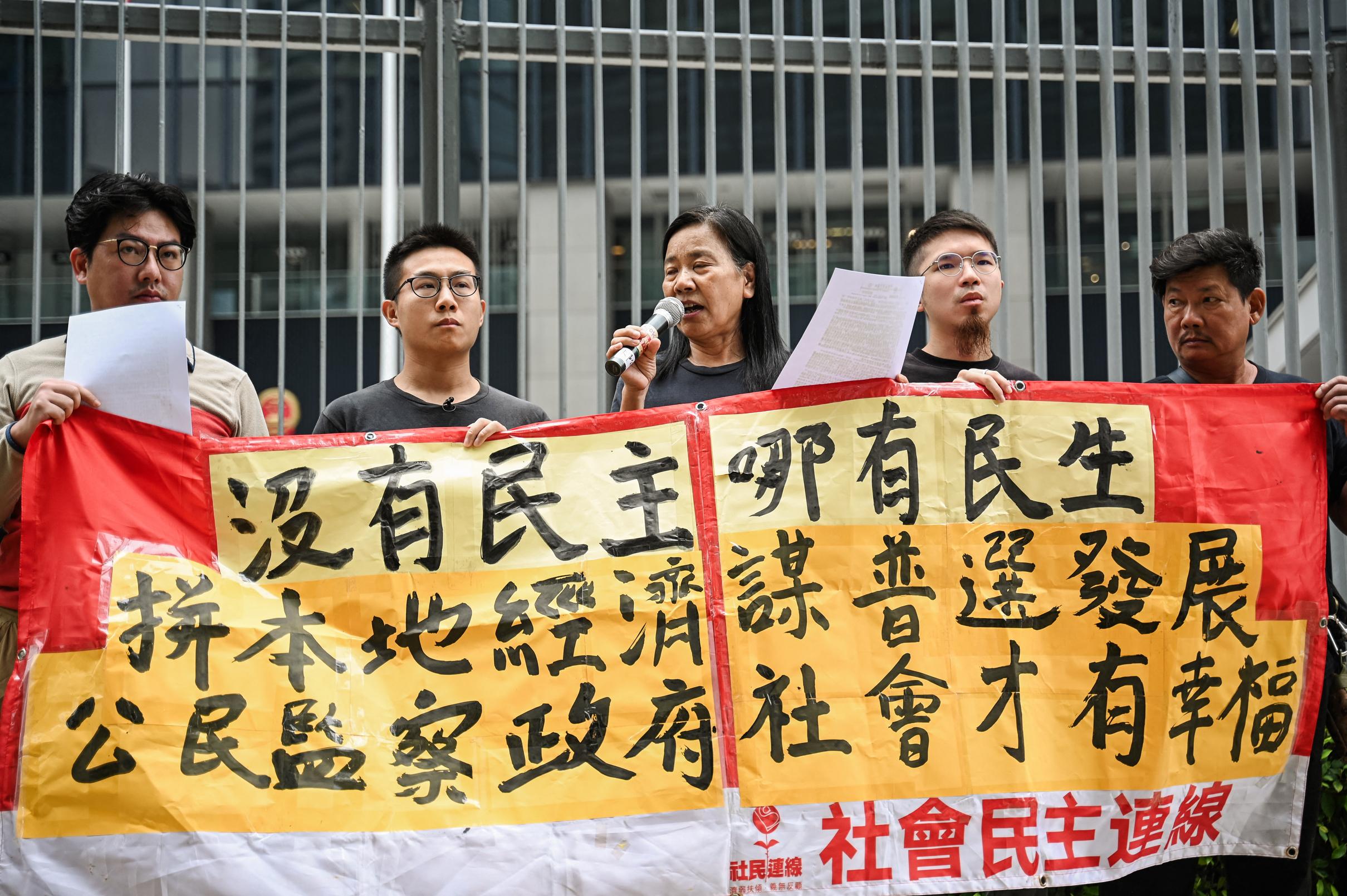
Such a surge reflects desperation among China’s working class that will only become harder to suppress as the economy worsens, according to Mr. Lai, now president of the Federation for a Democratic China in Canada.
He cited an ancient Chinese proverb: “If people are no longer afraid of death, how can you threaten to kill them?”
China’s youth, at least 1 in 5 of whom now are out of work and out of school, appear determined to buck the regime’s dictates. As Xi encourages them to “eat bitterness”—to perform menial labor and suffer for a greater cause—young adults are talking about “tangping,” or lying flat and doing nothing.
Miles Yu, a principal China policy strategist to the Trump administration, sees disillusionment in this passivity.
China has had economic downturns before, but “the real problem nowadays is that the overwhelming majority of people have lost confidence in the system,” he told The Epoch Times. “So even if the economy bounces back, people don’t want to believe in it anymore, that’s why they get out. So it’s [either] tangping or run away.
A Protest That Shocked
The fragility of the regime was exposed in late November 2022 when anger over deaths in a locked-down Xinjiang building boiled over and students and residents nationwide took to the streets.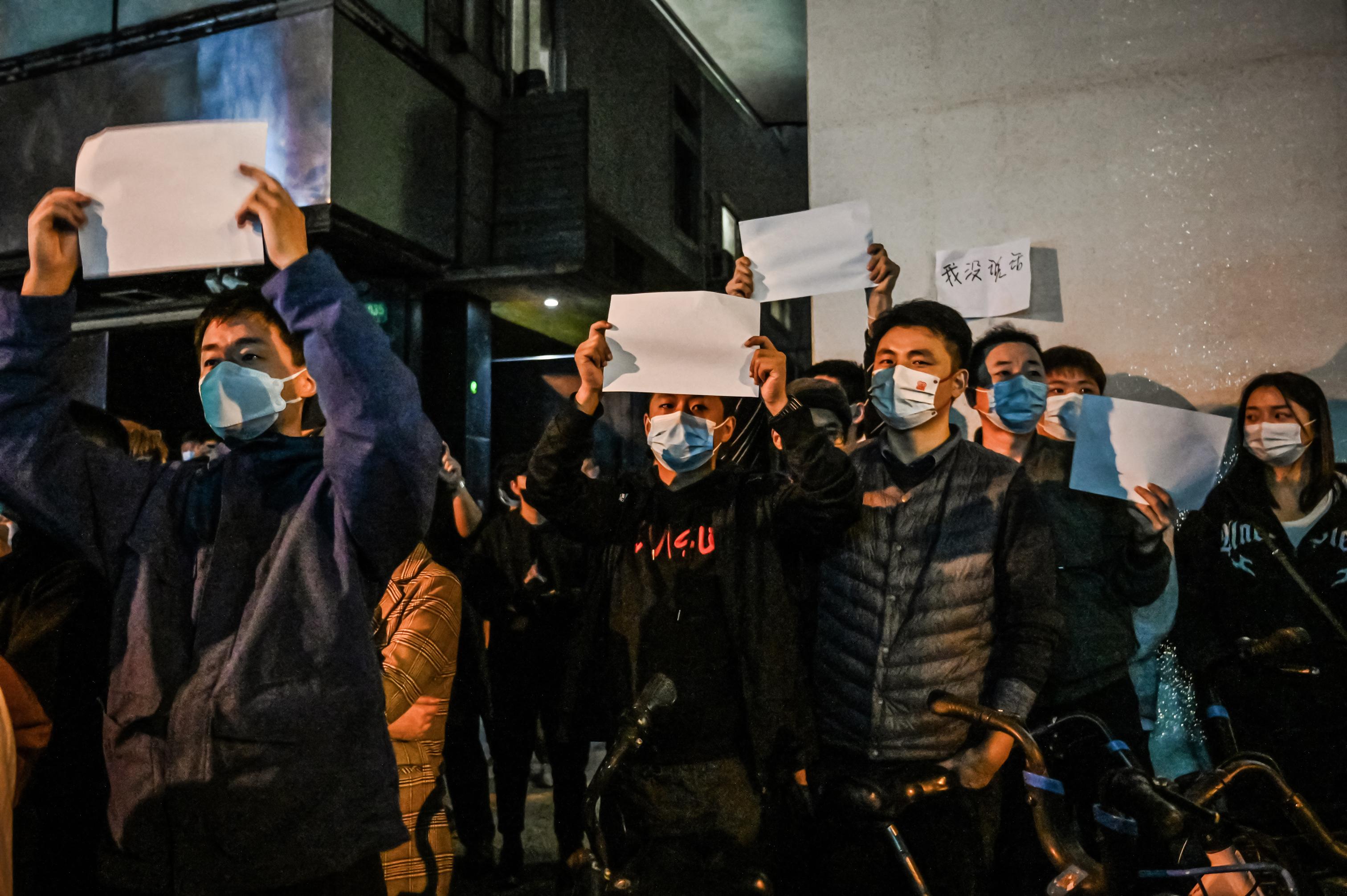
Imprisoning protesters hasn’t deterred others from commemorating the act of defiance. At Halloween, young people thronged Shanghai, dressing up as the COVID-19 rule enforcers and even as the president of the mainland’s democratic island neighbor, Taiwan leader Tsai Ing-wen.
Zhang Junjie, who took part in the protests as a freshman at the Central University of Finance and Economics in Beijing, said seeing so many fellow students stand up gave him fresh hope for China.
“The CCP has been instrumental in molding everyone into followers of the Party and the government ever since they were children. It has no idea that the Chinese people still have the courage to express their free will after so many years of brainwashing,” he told The Epoch Times.
A prolonged neighborhood shutdown caused Mr. Zhang’s grandmother to go for a month without heart medicine. Her chronic heart condition deteriorated, leading to surgery.
For his activism, Mr. Zhang said he was expelled from school, shut into a mental ward, and fed psychological drugs. He doesn’t regret it.
“It’s an honor,” he said after fleeing to New Zealand, where he’s seeking asylum. There, he’s taking courses to improve his English while saving tuition money through a part-time job. A local university has sent him an offer, and he hopes to get back to school in a few months.
When Xi traveled to San Francisco in November 2023 for the APEC summit, Mr. Wang, who lost his apparel business during the pandemic, protested near Xi’s hotel, wearing imperial Chinese garb as a mockery of the communist ruler’s unchecked power.
Soon after the protest, Chinese police tracked down and threatened Mr. Wang’s relatives in China. His Chinese social media accounts were suspended.
He shrugged it off.
“What else can they do?” Mr. Wang said. “The stronger you are, the weaker the evil is. As invincible as the CCP looks, it will crumble with a push.”
